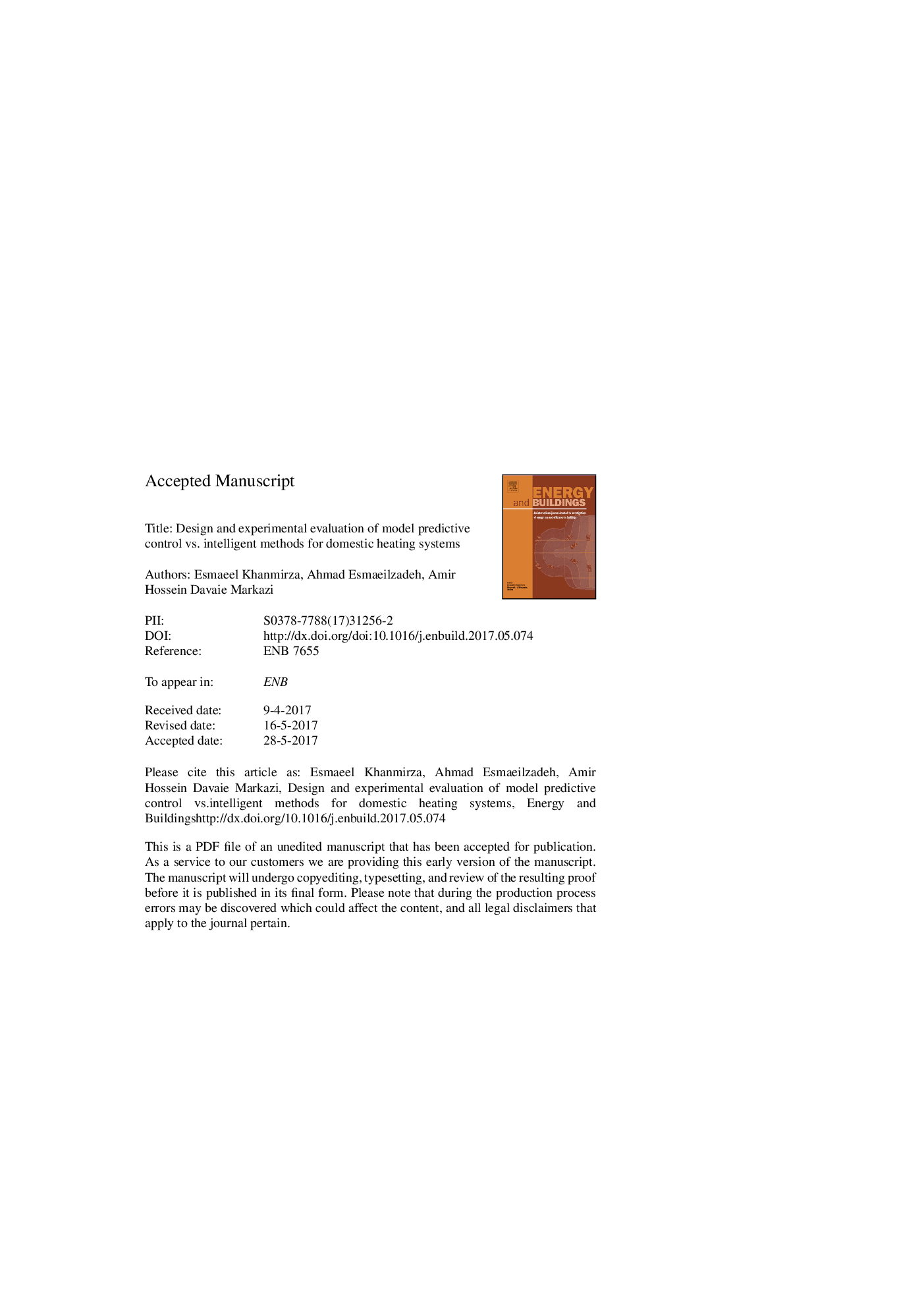ترجمه فارسی عنوان مقاله
طراحی و بررسی تجربی مدل پیش بینی کنترل مدل در مقابل روش های هوشمند برای سیستم های گرمایش خانگی
عنوان انگلیسی
Design and experimental evaluation of model predictive control vs. intelligent methods for domestic heating systems
| کد مقاله | سال انتشار | تعداد صفحات مقاله انگلیسی |
|---|---|---|
| 151187 | 2017 | 55 صفحه PDF |
منبع

Publisher : Elsevier - Science Direct (الزویر - ساینس دایرکت)
Journal : Energy and Buildings, Volume 150, 1 September 2017, Pages 52-70
ترجمه کلمات کلیدی
سیستم گرمای ترکیبی، ساختمان هوشمند، بهینه سازی مصرف انرژی، انرژی خورشیدی،
کلمات کلیدی انگلیسی
Hybrid heating system; Smart building; Optimizing energy consumption; Solar energy;

